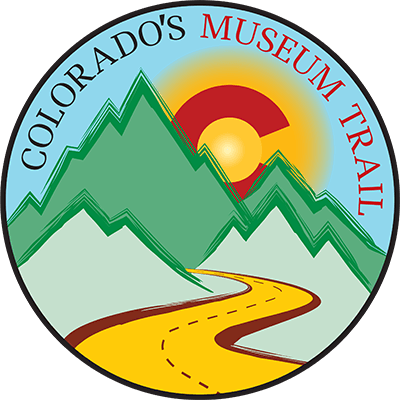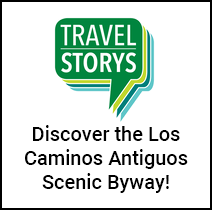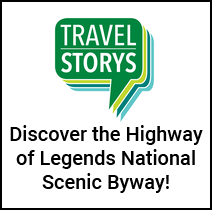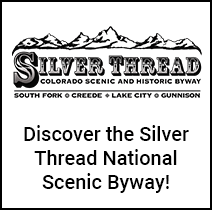Genealogical, Academia Research of the San Luis Valley
We have provided several sources of information for people working on their family history, school projects and academic research:
San Luis Valley Cemetery Listing
Genealogy Resources
Geocaching Project
Homelake Veterans' History Museum Veterans Database
Boulder County Library - Latino Oral History Project (San Luis Valley)
Hilos Culturales.org (Cultural Arts Film Series)
Do you have a story to tell? We would love to hear from you. Please fill out the Contact Us form. We will direct you to the appropriate museum for followup.
A brief history of the San Luis Valley:
The San Luis Valley is one of the largest high desert valleys in the world, lying at an altitude of over 7,500 -8100 feet. It is approximately 125 miles long and over 65 miles wide. Surrounded by the peaks of the Sangre de Cristo Mountains to the east and the San Juan Mountains to the west, the Valley is slightly larger than the size of Massachusetts.
The Rio Grande River begins as a small stream in the San Juan Mountains on the west side of the valley and was a major factor in the development of farming and ranching in the area.
It was originally home to the Ute Indians, who were removed from the valley in 1895. Other Indian tribes such as the Jicarilla Apache, Pueblo, Kiowa and Comanche raided or hunted here in early recorded times.
Many famous explorers penetrated the San Luis Valley between the sixteenth and nineteenth centuries, including Spaniards Juan de Onate, Juan Maria Rivera, and Juan de Bautista Anza. They were followed later by Americans such as Zebulon Pike and John Fremont.
A major trade route, The Old Spanish Trail, passes through the Valley and includes the Colorado Scenic Byways of Los Caminos Antiguos and Silver Thread.
Hispanic pioneers from New Mexico founded settlements at San Luis and other sites in the southern end of the valley as early as the 1840s. The US Army established Fort Massachusetts, near the present location of Fort Garland, in 1852, to provide valley settlers with protection against hostile Indians.
With the discovery of gold and silver in the San Juan mountains, a huge influx of miners and adventurers entered the area. By 1878 the railroad had reached Alamosa, which soon became destined to be the rail hub for the area. The narrow-gauge line was later extended to Antonito, Colorado and on into New Mexico.
New immigrants arrived to exploit the rich soil of the Valley for agriculture and ranching. Thriving Mormon (LDS) communities were established at Manassa, Sanford, La Jara, Romeo, and adjoining areas in the early 1870s. Dutch settlers developed productive farming communities at La Jara, Bowen and Waverly in the late nineteenth century. Japanese settlers were early immigrants to the area and contributed greatly to the agricultural productivity of the valley.
Alamosa, founded in 1878, is located in the center of the San Luis Valley and is home to Adams State University which was established in 1921 by then State Senator William "Billy" Adams, later a 3-term Governor of Colorado.
Nearby are the Great Sand Dunes National Park and Preserve, featuring 600 foot high sand dunes, making them the tallest dunes in North America. Mount Blanca, one of North America's highest peaks at 14,345 feet, towers over the east edge of the valley overlooking the huge Zapata Ranch, where thousands of buffalo still roam. At its foot lies Fort Garland where the old rebuilt cavalry post, commanded at one time by Colonel Kit Carson, is located.
In the mountains to the east and west are nationally known ski areas, hunting and fishing locations, and scenic mountain towns such as Creede, Lake City, South Fork, and La Veta.
Voices of the Valley and Rethinking Rural Women
Below are links for the "Voices of the Valley" oral history project being spearheaded by Tori Martinez and Dr. Ben Waddell (Adams State University) as well as Tori's Blog "Rethinking Rural Women" articles:
Rita Martinez talks about Hispanic rural life and traditions:
www.youtube.com/watch?v=DkvG-uR5-xo
Martha's life as a farmer's wife and the effects of discrimination on her family:
www.youtube.com/watch?v=1YzT_25hRYs
Olive Valdez on being a female farmer:
www.youtube.com/watch?v=KE186swwtY4
Erin talks about working on the Garcia vs. Vilsack case for discrimination against Hispanic and Women farmers:
www.youtube.com/watch?v=FO7nTFrnU7A
Forever is Temporary:
rethinkingruralwomen.blogspot.com/2016/05/forever-is-temporary.html
The Culture of Food:
rethinkingruralwomen.blogspot.com/2016/03/the-culture-of-food.html
Joys and Difficulties of Rural Life:
rethinkingruralwomen.blogspot.com/2016/02/other-things-ive-written.html
The following is a reading of an oral history transcript interview of Anita Cordova. Mrs. Cordova talks about her growing up in La Jara, moving to a ranch outside of Alamosa, attending Adams State University, teaching, getting married and raising a family in Garcia, CO.
The following is a reading of an oral history transcript interview of Patricia Malouf. Mrs. Malouf talks about her first date, a blind date, back in the 1950's living in the area of Sanford, Capulin and in Monte Vista.
Other Resources (books, databases, etc):
A Tortilla is Like Life: Food and Culture in the San Luis Valley Colorado
Crestone: Gateway to the Higher Realms
by James McCalpin
Ditches and Canals in Colorado
Michael Holleran
Gone with the Western Wind [the story of the High C Ranch in the San Luis Valley]
by Charles Oswald
Grave Images: San Luis Valley
by Kathy Hettinga
Land of the Blue Sky People
by Dr. Luther Bean
Saguache: Profile of Tranquility
by Paul Moloney
Saguache County: Including its History, the Indian Grove, The La Garita Wilderness
by Johnathan Black
Same Location, Different Time - Photographs of Creede
by Bob Seago
Sangre
by Samuel Medina Jr
719.671.5653
Self-published
Pueblo Chieftain article
San Luis
by Dana Maestas
888-313-2665 (Arcadia Pub.)
sales@arcadiapublishing.com
San Luis Valley, 2nd Edition
by Virginia McConnell Simmons
Land of the Six-Armed Cross
Southern Colorado: The O.T. Davis Collection
Monte Vista Historical Society
Tom Tobin: Frontiersman
by James E. Perkins
Around the Spanish Peaks
by Mike Butler
The Wandering Gene and the Indian Princess; Race, Religion and DNA
by Jeff Wheelwright




